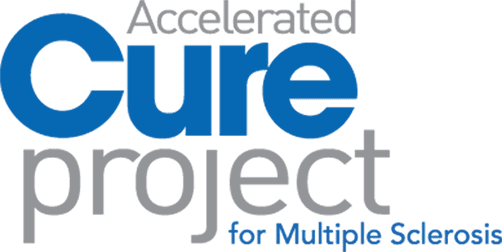Clinical trials help determine if treatments are effective and safe, guiding how doctors care for patients. But today, fewer than one in ten participants are from minority groups. People of different ages, gender identities, disability levels and locations are often left out, too. Yet these are precisely the voices that must be heard. Medical care isn’t one-size-fits-all, and neither is research. To truly improve health outcomes for everyone, clinical trial participants must reflect the rich diversity of the people affected. When research focuses too narrowly, the findings may not apply to or benefit everyone.


MS was long believed to primarily affect young white women, with lower rates among African Americans. However, studies now show that African Americans have higher rates of MS and often face more aggressive disease that responds less to certain treatments. Hispanic Americans may develop MS at a younger age and experience disability sooner. Yet both groups are still underrepresented in clinical trials, limiting our understanding of how MS affects them and which treatments are most effective.
People with disabilities, including those who use mobility aids, are often excluded from studies because of trial design, even though they may benefit most from new treatments. Older adults may be left out due to age limits, and people living in rural areas or without reliable transportation may simply lack access to research opportunities. People who identify as nonbinary or transgender may avoid healthcare spaces due to discrimination, making research participation especially difficult. Yet without their inclusion, the unique ways MS may affect them remain unexamined.

iConquerMS makes research open to everyone, no matter their age, health status, or MS progression. We are expanding our capacity for decentralized clinical trials (DCTs) which use digital tools to allow people to participate remotely. Unlike traditional trials that often require travel, DCTs reduce barriers like distance, mobility, and time, making it easier for more people to join.

Diversity in research is essential to ensure that scientific findings accurately reflect how treatments work for all people. Clinical trials that include participants of different races, ethnicities, disability levels, ages, locations, and gender identities produce results that are more relevant and reliable. Without this diversity, researchers may overlook how treatments affect different groups – potentially leading to incorrect assumptions about safety or effectiveness. This can cause gaps in care, particularly for those who are often left out of studies.
Including diverse groups in both research teams and study participants also drives better science. Different perspectives lead to more creative problem-solving and stronger research outcomes. At the same time, inclusive research helps reduce health disparities by identifying how different groups respond to diseases and treatments. It prevents costly mistakes, such as the release of drugs that may harm underrepresented populations, and builds trust in medical research by showing that all communities matter. When people see themselves reflected in research, they’re more likely to engage – paving the way for better health outcomes for everyone.

The MS Minority Research Engagement Partnership Network (MREPN) is committed to breaking down barriers to research participation. It works across communities to ensure MS research reflects the full spectrum of people affected. This includes not just racial and ethnic minorities, but also people of all ages, gender identities, levels of disability, and from urban and rural areas alike. The network brings together advocates, clinicians, researchers, industry representatives, and people with MS from underrepresented communities to build lasting partnerships and ensure research benefits everyone.

The MREPN, a team led by ACP, was established in 2016 with funding from the Patient-Centered Outcomes Research Institute (PCORI).

In 2017, the MREPN surveyed 2,599 people with MS to better understand their attitudes and experiences around participating in research. Responses were collected across racial and ethnic groups, offering insights that are also relevant across age, gender, ability and geographic diversity. Most people saw the value of research and were willing to participate. Forty percent had already taken part in a study, with most reporting positive experiences and interest in participating again. They wanted to feel informed, respected, and updated on study outcomes. Minority communities expressed deeper concerns about being exploited or not having their personal information protected.
The MREPN has released two downloadable toolkits to support more inclusive MS research – one for researchers recruiting participants, and one for clinicians who can help link patients to research opportunities:
The Patient Recruitment Toolkit for Research Professionals helps researchers understand and address barriers faced by underrepresented groups – from racial and ethnic minorities to people with physical disabilities, older adults, and gender-diverse individuals. It offers practical tools, outreach strategies, and insights for building trust and recruiting inclusively without delaying timelines.


The Patient Recruitment Toolkit for Health Care Professionals equips clinicians with discussion guides, educational resources, and patient-centered strategies to help connect people from all walks of life to research opportunities.
To increase access to relevant and high-quality information, the MREPN has also created a Resource Repository – an online library of articles, videos, toolkits, and educational materials on MS research and health equity. It’s easily searchable, filterable, and accessible to both professionals and the public, helping everyone stay informed and empowered.

For research to truly serve the people it aims to help, it must be inclusive. That means involving people of all backgrounds, ages, genders, abilities, and locations in every stage of the process. The MREPN is leading the way by bridging gaps, building trust, and creating tools that make participation more accessible. These resources empower both professionals and patients to contribute to research that reflects the true diversity of MS experiences. With continued engagement and commitment to health equity, we can ensure that every voice is heard, every journey is considered, and the benefits of medical advancements reach all.

Passionate about driving progress? The MREPN holds meetings every two months to share information, explore collaboration opportunities, provide support, and plan projects. Membership is free and open to all. We welcome anyone committed to making MS research more inclusive and representative. To join, contact us at msminorityresearch@acceleratedcure.org.

